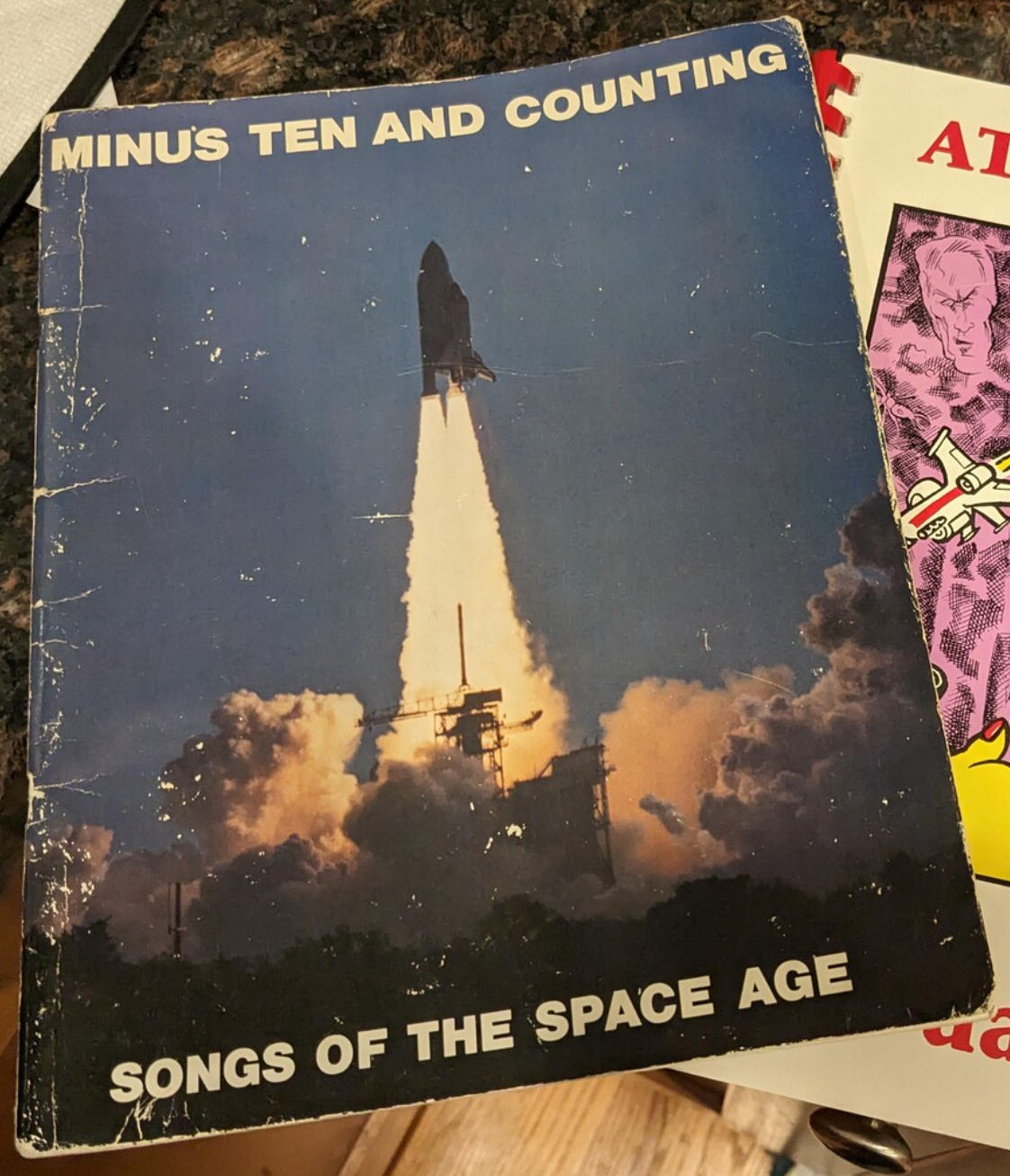Filk Music
My copy of the Minus Ten and Counting songbook.
“Filk” is not a typo, though it started out as one! When the Lee Jacobs essay intended to be titled “The Influence of Science Fiction on Modern American Folk Music” was rejected by the Spectator Amateur Press Society, an unedited version was widely circulated and broadly referenced, including a fateful typo. 1
Nowadays, “filk” primarily refers to modified versions of existing folk songs which highlight genre fiction concepts, particular events or characters from fictional worlds, or current- and near-future concerns. Prototypical examples include the officially sanctioned Alliance-Union album, “Finity’s End” and the collaboration album “Minus Ten and Counting”, which was intended to raise money for pro-space political groups in the 1980s.
Filk music is often baldly political, as in Duane Elms’ “The Bomber” or the titular track “Minus Ten and Counting”. These political messages are, more often than not, quite specific to their time period, and sometimes worryingly naive, but there are also examples of genuinely insightful and beautiful songs that tackle issues many straight-folk songs shy away from.
I love filk, with all its complexities, but it’s important to remember that filk music, even more than most music, is made by and for people in community at particular points in time, and to critique the art we enjoy.
I write filk music on occasion:
- Fly On, Columbia (Fly Columbia II) re: Roll Northubmria
- A Matter of Time re: The Temper of Revenge
-
Gold, Lee, “AN EGOCENTRIC AND CONVOLUTED HISTORY OF EARLY “FILK” AND FILKING”, 1997 (https://fanac.org/Fan_Histories/filkhist.html) ↩︎
